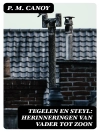In ‘Home Life in Germany, ‘ Alfred Mrs. Sidgwick presents a meticulous exploration of German domestic life during the late 19th century, encapsulating the cultural and social dynamics that defined the nation at the time. The book is structured around vivid anecdotal narratives and reflective observations, showcasing Sidgwick’s adept prose that blends personal experience with sociological commentary. This literary work is situated within the context of an era marked by burgeoning nationalism and societal transformation, providing readers with a nuanced understanding of domesticity, family structures, and the interplay between tradition and modernity in German society. Alfred Mrs. Sidgwick was an astute observer of the social realities of her time, a perspective likely influenced by her extensive travels and deep engagement with international cultures. Born into a literary family, her upbringing instilled in her a profound appreciation for the nuances of human behavior and social norms, shaping her as a keen chronicler of life beyond her own borders. Sidgwick’s firsthand experiences in Germany amplify the authenticity and depth of her narrative, making her insights both relatable and profound. This book is an essential read for anyone interested in social history, cultural studies, or the evolution of family life in Europe. Sidgwick’s work not only illuminates the intricacies of German home life but also serves as a bridge for contemporary readers to understand the historical contexts that continue to shape modern Germany. It’s an invitation to reflect on the nature of domesticity across cultures, making it a timeless examination of what it means to call a place home.
A propos de l’auteur
Alfred Mrs. Sidgwick, whose given name was Cecily Wilhelmina Sidgwick, was an esteemed English novelist and an avid observer of contemporary domestic life in different cultures. Born Cecily Wilhelmina Vulliamy in 1863, she was married to the philosopher and educator Alfred Sidgwick, hence often being referenced as Alfred Mrs. Sidgwick in her professional authorship. Throughout her literary career, she published numerous novels, with ‘Home Life in Germany’ being a notable work that explored the everyday experiences and social customs of German society during the early 20th century. In this book, published in 1908, Sidgwick provides a nuanced and insightful account of German domestic life, offering readers a rich portrayal of the era’s cultural norms and family dynamics. Her literary style is marked by incisive observation and a keen understanding of human character, which adds depth to her sociocultural narratives. Not limited to fiction, her body of work includes both novels and non-fiction, all characterized by her articulate prose and thoughtful analysis. Sidgwick’s contribution to literature is recognized for its eloquence and ability to provide a window into the lives of others during a time of great change in European history. She passed away in 1934, leaving behind a legacy of discerning literary works that continue to be appreciated by readers and scholars alike.












